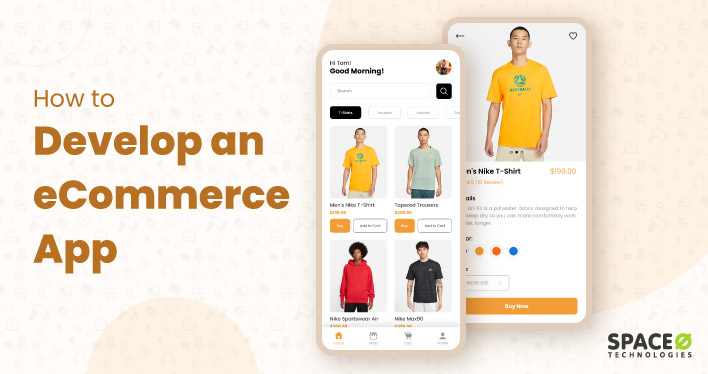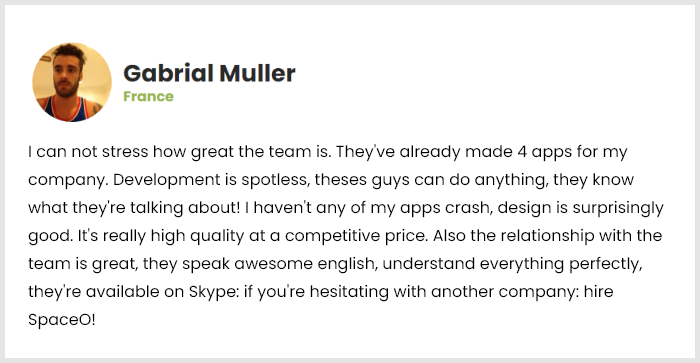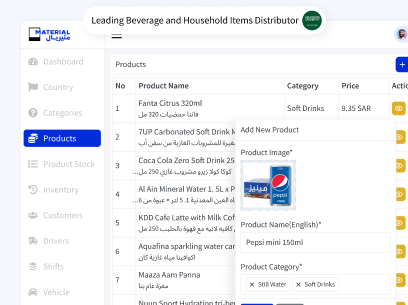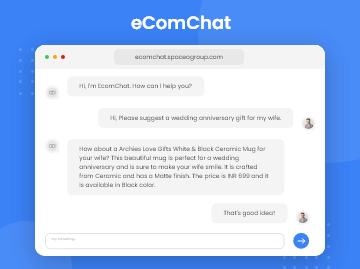If you want to learn how to develop an eCommerce app for your online business, you are at the right place.
Whether you’re a startup looking to launch your first eCommerce app or an established business looking to upgrade your online presence, this blog has everything that you want.
Space-O Technologies being a leading mobile app development company for more than a decade, have experience in developing eCommerce stores. So, we have written the process of eCommerce mobile app development to guide you further.
From this blog, you will learn:
- How to develop an eCommerce mobile app for your B2B or B2C business
- How much does it cost to build an eCommerce app from scratch?
- How much time does it take to build an eCommerce app?
But, first, let’s understand the data about the growing eCommerce mobile app market.
Let’s get started.
Table of Contents
eCommerce App Market Statistics and Trends
Whether you’re exploring e-commerce app development or evaluating the right approach for your business, understanding the market landscape is essential. Below are three critical statistics that demonstrate why investing in e commerce application development services is no longer optional; it’s essential:
- The global eCommerce market is projected to reach $83.26 trillion by 2030, expanding at a compound annual growth rate (CAGR) of 18.9% from 2024 to 2030. [Grand View Research]
- 73% of consumers prefer shopping on mobile apps rather than mobile websites. [Cropink]
- 47% of customers prefer using live chat for customer support, making it the dominant support channel. Phone support ranks second at 21.6%, followed by email at 14%, self-service portals at 10%, and social media support at just 4.8%. [Hostinger]
Now that you understand why ecommerce apps matter, let’s explore exactly how to build an ecommerce app successfully. In the next section, we’ll walk you through how to build an ecommerce mobile app solutions using our proven 7-step process, from market research to launch.
So, now let’s get started and create an e-commerce app that will take your business to the next level.
How to Develop an eCommerce Mobile App for Your B2B or B2C Business in 7 Steps
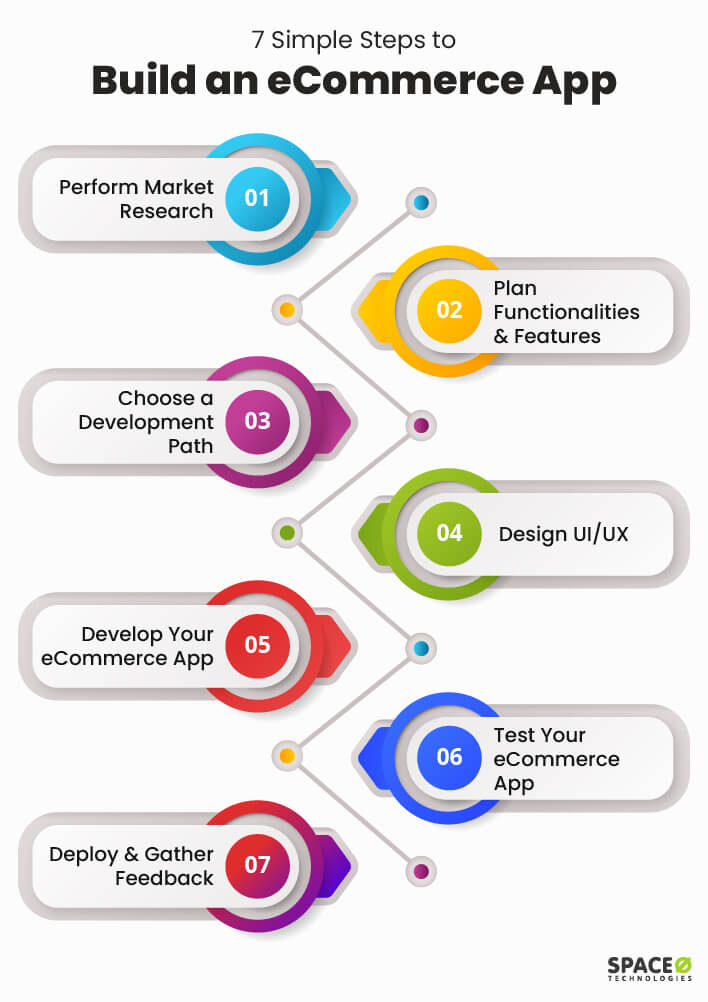
Here are the steps that help you to build eCommerce mobile platform even without a coding experience.
Let’s start with step 1.
Perform Market Research for Developing an eCommerce App
The first step is to define the target market for your eCommerce mobile platform.
Know whether you are targeting B2B customers or B2C customers or both. B2B(business-to-business) customers and B2C(business-to-consumer) customers have different needs and preferences when it comes to purchasing and using products or services.
- B2C – Focuses on individual needs and preferences. Eg: Amazon, eBay, Etsy
- B2B – Looks for solutions that streamline operations, improve efficiencies, and drive business results. Eg: Alibaba, SAP, Grainger, Thomasnet
Once you know whom you are targeting (B2B or B2C), perform in-depth research about your target audience.
While finding out the target audience, make a list with the following points:
- What are the pain points of your customer? (Eg: tracking issues, limited payment options, or product information)
- For which demographics (age, gender, location, and interests) will your app be suitable?
- What are the interests and preferences of your customers(Eg: sports, apparel, luxury goods)
- Who are your competitors? (Know features, limitations, and USP in-depth)
Once you have collected data on your target audience, create buyer personas that represent your ideal customer. These personas should include details such as age, gender, income level, interests, values, and purchasing habits.
Example: If you are planning to develop a
Fashion and Beauty App: The target audience for fashion and beauty apps can include women and men aged 18-45 who are interested in fashion, beauty, and grooming.
This age group may have a moderate to high-income level and can be interested in purchasing high-quality, fashionable clothing and beauty products.
For instance,
Sephora: Sephora’s target audiences are women and men who are interested in beauty and skincare products. This beauty brand offers a variety of high-quality cosmetics, skincare, and fragrance products from a range of brands, as well as their own in-house brand.
Apart from this, one more thing you need to do is a SWOT analysis of your eCommerce app.
SWOT: Strength, Weakness, Opportunity, and Threat
SWOT analysis helps you to make the right decisions as per your goals, and maximize your chances of successStrengths Weaknesses Opportunities Threats Internal factors that give the business a competitive advantage. Internal factors put the business at a disadvantage compared to competitors. External factors that can be leveraged for business growth. External factors that can negatively impact the business. Examples: a strong brand, loyal customer base, and efficient supply chain. Examples: outdated technology, limited resources, and high employee turnover. Examples: emerging market trends, untapped customer segments, and partnerships. Examples: increased competition, economic downturns, and changes in regulations. The right background research helps you gain in-depth information about your target audience. And that will shape how your product evolves.
Plan the Functionalities and Features of Your Mobile eCommerce App
To identify the features of your eCommerce mobile app, it’s important to consider what you want to offer your customers. Understanding how to make an e-commerce app requires carefully considering which features to include based on target audience, business goals, and budget.
Quick Tip:
Check the top reviews section of eCommerce apps on Google Play Store and Apple Play Store. Often, users share their feedback and expectations related to the app’s functionality in these sections.
By analyzing these comments, you can gain valuable insights into what features and functionalities are most important to users.
Here we have made a list of basic and advanced features for you to integrate into your eCommerce business.
Basic features to integrate into your marketplace app.
Feature Description Benefits Product Catalog A searchable list of products with descriptions, images, and prices Makes it easy for customers to find and browse products Shopping Cart Allows customers to add products to a virtual cart and view their total cost Streamlines the purchase process for customers Payment Gateway A secure online system that allows customers to make payments using various methods (credit card, PayPal, etc.) Facilitates safe and convenient transactions for customers Order Tracking Allows customers to track their orders from the time of purchase to delivery Enhances transparency and customer satisfaction Customer Support Provides customer support via email, phone, or chat Helps resolve customer issues and builds trust Reviews and Ratings Enables customers to leave reviews and ratings for products and services Helps build social proof and enhances the credibility of the business Analytics Provides insights into customer behavior, sales performance, and other key metrics Helps your businesses make data-driven decisions. Social Media Integration Allows customers to share products they like on social media and make purchases directly from social media platforms. Expands the reach of your business and encourage social media engagement Multi-Currency Support Allows customers to view product prices and make purchases in their local currency. Increases the global reach of the business and reduces barriers to purchase for international customers Advance features to integrate into your eCommerce mobile app
Feature Description Benefits Personalized Product Recommendations Machine learning algorithms can be used to analyze customer behavior and purchase history to suggest personalized product recommendations. Increases customer satisfaction and encourages repeat business Augmented Reality Using AR, customers can virtually try on clothing, visualize furniture in their homes, or see how makeup products look on their faces before making a purchase. Enhances the shopping experience and reduces the number of product returns Chatbots AI-powered chatbots can assist customers with inquiries, offer product recommendations, and process transactions. Provides 24/7 customer support and reduces the workload of customer service staff One-click Checkout Allows customers to complete a purchase with just one click, without having to enter payment or shipping information again. Streamlines the purchase process and reduces cart abandonment Voice Search Allows customers to search for products and make purchases using voice commands. Enhances accessibility and provides a more convenient shopping experience Subscription Model Allows customers to subscribe to products they regularly purchase and receive them at regular intervals. Encourages customer loyalty and provides a steady source of revenue for the business Apart from these features you can also improve your ecommerce app by integrating OpenAI powered ecommerce advanced search which will improve the quality of your ecommerce search results and thus lead to better user engagement. For a better understanding you can read our case study on how we increased revenue from ecommerce search solution built using OpenAI.
You must take note that including too many features can be overwhelming for users, while too few can limit functionality and hinder growth.
By selecting the right combination of features, you can make an ecommerce app that meets the needs of your customers.
Choose an eCommerce App Development Path
When it comes to choosing an eCommerce mobile app development path, there are two main options:
- Selecting an ecommerce development company to create a custom eCommerce store.
- Choosing a low-code app development platform.
Let’s discuss both approaches in detail.
Selecting an app development company to create a custom eCommerce store
eCommerce app development companies have a dedicated team who possesses the skills and experience to create high-quality custom store mobile apps.
If you choose an app development company,
- You get a range of services beyond just eCommerce mobile app development, including testing, deployment, and ongoing support.
- Ensures that your eCommerce store runs smoothly and any issues can be quickly resolved.
- The team can use advanced and basic technology stacks by considering the factors like scalability, security, and user experience.
Choosing a low-code app development platform to develop eCommerce Store
Appy Pie, AppSheet, and Shopify are some of the drag-and-drop eCommerce website builders that help you to create a store without any technical efforts. Just choose the templates, and drag-and-drop elements and your app is ready in no time.
It offers a simple and faster approach but we do not suggest you go for free Android or iPhone app builders because:
- You can’t get the same level of customization that an app development company can provide.
- Integrating payment gateways, advanced AI-based features, and third-party can be difficult.
- You can’t access the new and latest technologies, tools, and techniques.
- Security is compromised, and pre-built templates and generic code are used, making it vulnerable to hacks and cyber attacks.
However, if you have an extremely limited budget, a low-code platform can be a viable option for you. Recently, we tested a popular free app-building platform to create a WebView app with our website’s URL, but the resulting APK was 67.31MB, laggy, and had watermarks.
We don’t oppose app builders, but it’s important to choose them carefully. Pick a plan that offers enough freedom to customize and optimize your app as needed.
Design the UI/UX of Your Marketplace App
If you choose an app development company to build your online store, the business analyst team creates a wireframe and mockups to build the skeleton of the app. Once the wireframing is completed, the UI/UX team of the app development company creates a design by following the design guidelines of the App Store and Play Store.
An experienced web designing professional knows how to align the logo, colors, fonts, images, and other visual elements that show your brand identity. You can even hire our UI/UX design team as our team creates a user-friendly interface, and even ensures that your eCommerce mobile app is responsive across different screen sizes. In fact, we recently created a design for an online bookstore, Sahanbooks in Somaliland.
If you have selected eCommerce website builders or SaaS platforms, you have to choose the theme and categorize your product. If you are building a marketplace app or eCommerce website from scratch, customize the template by designing it in a way that is attractive and easy to read.
Development of Your Online Store
In the mobile app development process, the development phase is the most important stage; if you choose a mobile app development company
Once the planning and designing are complete, the eCommerce mobile app development team starts coding your iOS, Android, or cross-platform app. The team writes the code for the front end and back end of the app, integrating various APIs, and adding the necessary features and functionality.
With the use of programming languages like Kotlin, Java, Swift, Flutter, and React Native, the eCommerce mobile app development team creates a scalable app for you.
Technology Stack for Developing eCommerce Mobile App
Technology Purpose PHP, Python Backend programming language Laravel, CodeIgniter PHP frameworks MySQL, PostgreSQL Relational databases MongoDB NoSQL database HTML, CSS, JavaScript Frontend development jQuery, React, Angular JavaScript frameworks Bootstrap, Foundation CSS frameworks Apache, Nginx Web servers Git Version control AWS, Google Cloud, Azure Cloud hosting services Stripe, PayPal, Authorize.Net Payment gateways SSL Certificate Security Swift, Kotlin Native mobile app development Android, iOS Mobile operating systems React Native, Flutter Cross-platform While creating your app, a project manager is a point of contact to discuss the whereabouts of your software. For communication, multiple tools are used including Skype, Slack, Asana, and phone calls.
You can also consider Space-O as your reliable eCommerce mobile app development partner because of our experience in developing eCommerce apps. Recently we designed and developed an online store for dental supplies. This marketplace enables customers to browse and buy from over 1,30,000 of their dental products.
So far, we have developed over 4400 iOS and Android apps. You will be surprised to know that Space-O has 96% job success on Upwork. Recently, we developed 4 apps for one of our clients named Gabrial Muller in France. And, here is the testimonial he shared showcasing how happy he was working with Space-O Technologies.

On the other hand, if you have chosen an app builder, the ecommerce application development process will be different. You will have to use the platform’s drag-and-drop interface to create your app. While this process may be simpler, it also means you have less control over the final product. You will have to work with the app builder’s templates and features, and you may not be able to add more complex functionalities that a custom-built app could provide.
Regardless of which path you choose, the key is to focus on creating an app that meets the needs of your customers and delivers a seamless shopping experience.
Testing of Your Native eCommerce App
After the development phase of your mobile eCommerce app is complete, the app development team will perform various testing procedures to ensure that the app is free from errors and functions smoothly. Testing helps identify and resolve any issues before the app is launched in the market.
If you have hired an eCommerce testing team or custom app development company, they will complete the entire app by doing mobile app performance testing such as unit testing, mobile device testing, and functional testing depending on the needs of the business.
The following are some of the testing procedures that may be carried out:
App Testing Methods Description Functional Testing This testing procedure checks if all the features and functions of the app are working correctly. Performance Testing Performance testing checks the app’s performance in different scenarios and ensures that it performs well under various conditions, such as high traffic. Usability Testing This testing procedure ensures that the app is user-friendly and easy to use for the target audience. Security Testing Security testing checks the app for vulnerabilities and ensures that it is secure from potential attacks. Compatibility Testing Compatibility testing checks if the app works correctly across different mobile devices, platforms, and operating systems. Regression Testing Regression testing checks if any new changes or updates made to the app have not affected the previously working features. By conducting these tests, the development team can ensure that the app is of high quality and meets the user’s expectations, leading to a successful launch in the market.
However, if you’re developing an eCommerce app from scratch with the help of an app builder, it is recommended to preview the complete website before launching and ensure that all the web controls work as they should.
Deployment of Your eCommerce App on the App Stores
After the testing phase is completed, the app is ready to deploy.
The deployment phase involves the following steps:
- Hosting the app on a server: The app needs to be hosted on a server like AWS that can handle the traffic and provide a fast and reliable experience to users.
- Publishing the app on app stores: Your app will be published on the respective app stores such as the Apple App Store or Google Play Store. This process involves meeting certain guidelines and requirements set by the app stores.
Once the app is hosted and published, it can be made live and available for users to download and use.
It is important to monitor the app’s performance after deployment and make necessary updates and improvements to provide a better user experience. Upgrade your eCommerce app at regular intervals by adding features, and customizing design, description, and images. This not only enhances the shopping experience of your eCommerce store but also increases customer loyalty.
Once your app is deployed, you’ll need to promote it to reach your target audience and increase app downloads and usage. Consider using social media, email marketing, and other digital marketing strategies to promote your app. Set up analytics and monitoring tools to track app performance, and user behavior, and identify areas for improvement.
Till here, you know how to launch your eCommerce app from scratch now.
But, we are still missing one of the most important points – eCommerce app development cost and timeline.
When you read the next step, you won’t have further questions regarding eCommerce application development cost and timeline.
Want to Develop an eCommerce App for Your Business?
Our eCommerce app developers have the experience and skills to develop an eCommerce app as per your requirements.

Find the Right eCommerce App Developers for Your Project
From design to deployment, our team crafts eCommerce apps that boost engagement and drive sales. Start building your app with us today.
How Much Does it Cost to Make an eCommerce Mobile App?
The cost of developing eCommerce mobile apps can vary widely depending on several factors, such as the
- Features and functionality,
- Complexity of the design,
- Technology stack,
- Location of the development team.
In general, the cost of developing an eCommerce can range from $10,000 to $500,000 or more.
Here is the rough bifurcation of cost to build an eCommerce app.
| eCommerce App Complexity | eCommerce App Estimated Cost | eCommerce App Examples |
|---|---|---|
| Simple | $15,000 to $40,000 | H&M, Zara, Adidas |
| Medium | $30,000 to $50,000 | Nike, Sephora, IKEA |
| Complex | $60,000 to $1,20,000 | Amazon, Walmart, Target |
As you have got idea of eCommerce app development cost, let’s now learn in detail about each phase timeline.
How Much Time Does it Take to Create an eCommerce App?
Similar to cost, the time required to build an eCommerce app depends on various factors, such as the complexity of the app, features and functionality, technology stack, team size, and more.
Generally, eCommerce application development takes around 4 to 12+ months.
Here’s a table outlining the estimated development time for simple, medium, and complex mobile eCommerce apps:
| eCommerce App Complexity | Estimated eCommerce App Development Timeline |
|---|---|
| Simple | 2-4 months |
| Medium | 4-8 months |
| Complex | 8-12+ months |
If you have advanced features in mind, and want to get a personalized quote for your cost and timeline, contact us. Our senior eCommerce app development consultant guides you with the strategies and provides you detail with the complete cost bifurcation for your online store.
You are now clear with the development cost and steps to build an eCommerce app solution.
Ecommerce Platforms Developed by Space-O
How to Monetize Your eCommerce App
Many entrepreneurs ask: “How to develop an ecommerce app that actually makes money?” The answer depends on choosing the right revenue model that aligns with your business goals and customer expectations.
Here are for popular monetization models to generate revenue from your eCommerce app:
| Revenue Model | How It Works | Commission/Markup | Best For |
|---|---|---|---|
| Commission-Based (Marketplace) | Charge percentage on each transaction. Etsy, Airbnb, Uber Eats model. | 10–20% per order | Multiple sellers connecting with buyers |
| Subscriptions (Recurring) | Monthly/yearly membership tiers with exclusive benefits | $4.99–$19.99/month | Repeat purchase categories (groceries, beauty, supplies) |
| Delivery Fees | Charge per delivery or offer tiered pricing | $2–$5 per order | On-demand food delivery and local services |
| Product Markup (Inventory-Based) | Own inventory, profit from wholesale-to-retail spread | 20–40% markup | Direct sales, specialty brands, retailers |
Choose commission-based if you want low risk and a growing marketplace. Choose subscriptions for predictable revenue and loyal customers. Choose delivery fees for on-demand categories. Choose markup if you have capital and want direct control. Most successful mobile ecommerce app development combines two or more models, commission-based revenue + subscription tier.
When you create an ecommerce app, start with one or two revenue streams that naturally complement your primary model. Once your core monetization is optimized, layer on additional revenue streams following ecommerce web app development best practices.
Emerging eCommerce App Development Trends
The ecommerce landscape evolves constantly. Understanding emerging ecommerce website and app development trends is critical when planning a mobile app that remains competitive. Technology, consumer behavior, and market dynamics are reshaping what successful apps look like.
Here’s what’s driving innovation in mobile app development for ecommerce right now.
1. AI-Powered Shopping Experience Personalization
Artificial intelligence is moving from “nice to have” to essential. Machine learning algorithms analyze user behavior to deliver hyper-personalized product recommendations, custom pricing, and tailored search results.
Amazon’s recommendation engine is a significant revenue driver for the company. Personalization increases average order value, making this trend non-negotiable for any serious ecommerce app.
2. Augmented Reality (AR) Try-Ons
AR integration is no longer experimental. Sephora lets customers virtually try makeup, IKEA visualizes furniture in homes, and Nike previews shoes. AR significantly reduces return rates and dramatically increases purchase confidence.
If you’re building a fashion, beauty, or home goods app, AR capabilities directly impact conversion rates and customer satisfaction.
3. Voice Commerce and Search
“Alexa, order my usual coffee beans” is becoming mainstream. Walmart, Amazon, and Target enable voice shopping through their apps and smart home integration. Voice search optimization works differently from text search.
Voice commerce offers accessibility for elderly users and hands-free convenience for busy shoppers, a growing market segment.
4. Omnichannel Integration
Customers expect seamless experiences across app, web, and physical stores. They browse on the app, purchase on the website, and return to a store. Successful apps sync inventory, pricing, and customer profiles in real-time across all channels.
This reduces operational complexity while improving customer lifetime value.
5. Subscription and Loyalty Features
One-time purchases are being replaced by recurring revenue models. Subscriptions for groceries, beauty products, and supplies drive predictable revenue and improve retention. Apps like Birchbox and Costco+ built entire revenue streams on subscriptions.
Loyalty programs with points, exclusive discounts, and early sales access increase customer lifetime value significantly.
6. Sustainability and Ethical Shopping
Younger consumers increasingly prefer brands demonstrating environmental responsibility. Patagonia’s app emphasizes repair services and sustainable materials, building brand loyalty beyond just transactional relationships.
Highlighting sustainable products and carbon-neutral shipping gains competitive advantages.
7. Social Commerce Integration
Shopping directly within social media platforms (Instagram, TikTok, WhatsApp) is becoming standard. Users discover products through influencer content and purchase without leaving the app. This integration reduces friction in the purchase journey and captures impulse purchases.
When you create an ecommerce app, these trends shape development priorities based on your business model. The strongest ecommerce app development solution strategy involves identifying which trends matter most to your users. Partnering with experienced ecommerce application development services helps you execute the right trends exceptionally well.
FAQ About eCommerce App Development
What is the business model of eCommerce applications?
There are six major eCommerce business models:
- Business to Consumer (B2C): This model involves selling products or services directly to individual customers. Examples of B2C eCommerce companies include Amazon, Walmart, and Target.
- Business to Business (B2B): This model involves selling products or services between businesses. Examples of B2B eCommerce companies include Alibaba.
- Business to Government (B2G): This model involves selling products or services to government agencies. Examples of B2G eCommerce companies include GovWin,
- Business to Business to Consumer (B2B2C): This model involves selling products or services to businesses that then sell those products or services to end consumers. An example of a B2B2C eCommerce company is Shopify, which allows businesses to create their own online stores and sell products to consumers.
- Consumer to Consumer (C2C): This model involves selling products or services directly between consumers. Examples of C2C eCommerce companies include eBay, Etsy, and Craigslist.
- Consumer to Business (C2B): This model involves consumers selling products or services to businesses. An example of a C2B eCommerce company is Upwork, where freelancers offer their services to businesses and clients can hire them
What are the benefits of creating an eCommerce application?
Creating an eCommerce application can offer a range of benefits to businesses. Here are some of the main advantages:
- Increases Reach: An eCommerce app allows businesses to reach a wider audience, beyond the physical boundaries of a brick-and-mortar store.
- Convenient Shopping: Customers can shop at any time, from anywhere, using their smartphones or computers, making the shopping experience more convenient.
- Provides Better Customer Insights: An eCommerce app can collect valuable data on customer behavior, such as their preferences, purchase history, and demographics. This is used to create more targeted marketing campaigns and personalized shopping experiences.
- Cuts Cost: Running an eCommerce app can be more cost-effective than running a physical store, as it eliminates the need for rent, utilities, and staffing costs.
- Increases Sales: With an eCommerce app, you can sell to customers around the clock, increasing their sales potential.
- Improves Customer Experience: eCommerce apps offer a range of features to improve the customer experience, such as one-click ordering, personalized recommendations, and easy returns.
What should I look for when choosing an ecommerce app development company?
Not all ecommerce app development companies are created equal. Look for partners with proven experience building apps in your specific niche, whether that’s fashion, grocery, or marketplaces. Ask for case studies and client references, not just portfolio screenshots. The right ecommerce app development company should understand your business model and revenue strategy, not just build features.
They should guide you through monetization choices, scalability planning, and post-launch support. Red flags include companies promising unrealistically low costs, guaranteed rankings, or rigid fixed-price contracts that don’t account for changes.
What causes ecommerce apps to fail, and how do I avoid these mistakes?
Top failure reasons: poor user experience, high customer acquisition costs, weak retention, operational problems (shipping delays, payment failures), and inadequate post-launch marketing. Success requires focusing on user experience first, validating demand before building, planning retention strategies, and budgeting for marketing. Experienced ecommerce application development services help identify and prevent these common pitfalls before they derail your app.
Should I build iOS and Android simultaneously or start with one platform?
Android has a larger market share globally; iOS dominates in wealthy markets. When you create an ecommerce app, start with whichever platform your target users prefer. Building both simultaneously costs 40–50% more and takes 30–40% longer.
Launch on one platform, gather user feedback, then expand. Leading ecommerce application development service providers recommend this phased approach to reduce initial investment and validate faster before expanding to other platforms.
Let Us Help to Build an eCommerce App for Your Business
Developing an eCommerce app is not an easy task. But with the right team of developers and a solid plan in place, you can create a high-quality app that meets the needs of your customers.
Whether you’re looking to start a new mobile Commerce venture or improve an existing one- we can help you. Our team of experts can guide you through every step of the development process, from planning to deployment.
However, suppose you need any guidance or want to get the answer to a question about creating an eCommerce app – consult us.
If you get in touch with us you will get
- eCommerce app idea validation
- 30-min free consultation
- Cost and timeline for mobile Commerce app development
- Signed NDA to protect your idea
By choosing Space-O Technologies., you can be confident in the quality of your eCommerce app. So why wait? Get in touch with Space-O Technologies. today and start developing your eCommerce app.
